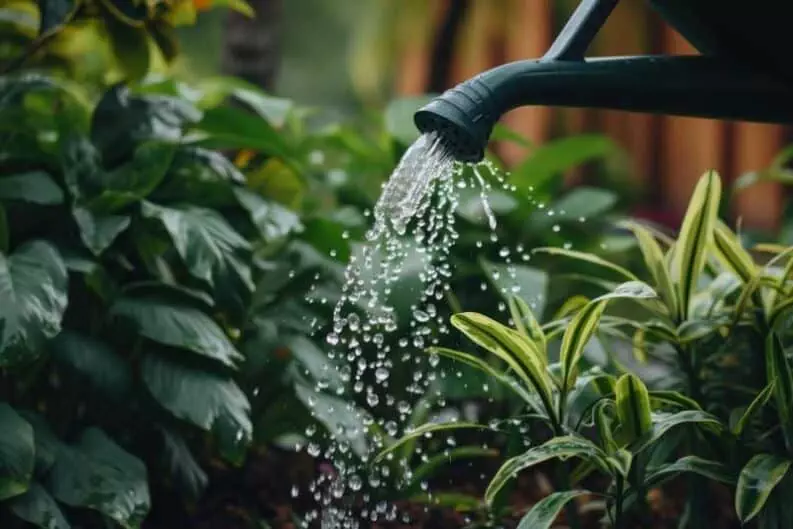Table of Contents
In our modern age, where environmental concerns are increasingly at the forefront of our minds, the concept of an eco-friendly yard has never been more pertinent.
By embracing sustainable practices, homeowners can not only reduce their carbon footprint but also cultivate a healthier and more vibrant outdoor environment. From the choice of plants to water conservation and eco-conscious lawn care, there are myriad ways to transform your yard into a haven that benefits both you and the planet.
Embracing Native Plants and Wildlife
At the heart of eco-friendly landscaping lies the integration of indigenous plants into your outdoor space. Native species have evolved to thrive in your region’s specific climate, soil conditions, and ecosystem, necessitating minimal water, fertilizer, and pesticides compared to non-native alternatives. Furthermore, native plants play a vital role in providing habitat and sustenance for local wildlife, including birds, bees, and butterflies, thereby fostering biodiversity.
Instead of conventional lawns, consider replacing them with native grasses or ground covers. These alternatives require less maintenance while offering a natural haven for insects and other small creatures. By cultivating a diverse selection of native trees, shrubs, and flowers, you not only enhance the aesthetic appeal of your yard but also contribute to the overall well-being of local ecosystems.
When it comes to maintaining larger yards, homeowners might find the Cub Cadet riding lawn mowers to be a convenient and efficient choice for keeping their lawns well-groomed. These machines offer increased speed and cutting width compared to push mowers, making them ideal for covering extensive areas in less time. Additionally, riding lawn mowers come equipped with comfortable seating and ergonomic controls, ensuring a more enjoyable mowing experience. Whether you have rolling hills or flat terrain, a riding lawn mower provides the power and maneuverability needed to achieve a professionally manicured lawn with minimal effort.
Prioritizing Water Conservation
Effective water management is another cornerstone of eco-friendly yard practices. Instead of relying on conventional irrigation systems that consume copious amounts of water, explore options like rainwater harvesting or drip irrigation to efficiently deliver water directly to plant roots. Mulching around plants helps retain soil moisture and suppresses weed growth, reducing the need for frequent watering.
Furthermore, opt for drought-tolerant plant species and group plants with similar water requirements to minimize water usage. By implementing these strategies, homeowners can conserve precious water resources and establish a resilient landscape capable of withstanding dry spells. These eco-friendly practices not only benefit the environment but also contribute to cost savings for homeowners by reducing water bills and minimizing the need for supplemental irrigation. By prioritizing water conservation and sustainable landscaping techniques, individuals can significantly mitigate the effects of water scarcity and promote ecological resilience in their communities.

Nurturing Soil Health through Composting
Healthy soil is fundamental to a flourishing garden and plays a pivotal role in maintaining ecological equilibrium. Composting kitchen scraps and yard waste not only diverts organic matter from landfills but also produces nutrient-rich compost that enhances soil structure and fertility. Incorporating compost into garden beds aids in moisture retention, weed suppression, and the proliferation of beneficial soil microorganisms.
Eschew synthetic fertilizers and pesticides, can leach into groundwater and harm beneficial insects and wildlife. Instead, embrace organic fertilizers and natural pest control methods such as companion planting and biological controls to foster a harmonious and resilient ecosystem in your yard.
Rethinking Lawn Care: Riding Mowers and Beyond
While lawns can provide recreational space and visual appeal, they often necessitate substantial inputs of water, liquid fertiliser nz, and fuel for maintenance. Riding lawn mowers, in particular, are notorious for their environmental impact due to their reliance on fossil fuels and emission of greenhouse gases.
However, there are eco-friendly alternatives to traditional lawn care practices. Consider investing in a push reel mower or an electric lawn mower powered by renewable energy sources like solar or wind. These options produce zero emissions and require minimal upkeep, offering both environmental benefits and long-term cost savings.
If a riding lawn mower is unavoidable, opt for a model with a smaller engine size and ensure it meets the latest emissions standards. Regular maintenance, including proper tire inflation and engine tuning, can enhance fuel efficiency and reduce emissions.
Conclusion: Cultivating a Greener Future, One Yard at a Time
Establishing an eco-friendly yard is a testament to environmental stewardship and a tangible step towards a more sustainable future. By embracing native plants, conserving water, nurturing soil health, and rethinking traditional lawn care practices, homeowners can create a verdant and resilient outdoor space that enhances biodiversity and ecosystem vitality.
Whether you’re embarking on a landscaping project from scratch or seeking to revitalize an existing yard, there are ample opportunities to positively impact the environment through eco-conscious choices. By taking incremental steps towards sustainability, homeowners can play a meaningful role in safeguarding the planet for generations to come while enjoying the beauty and serenity of a green space right outside their door.


